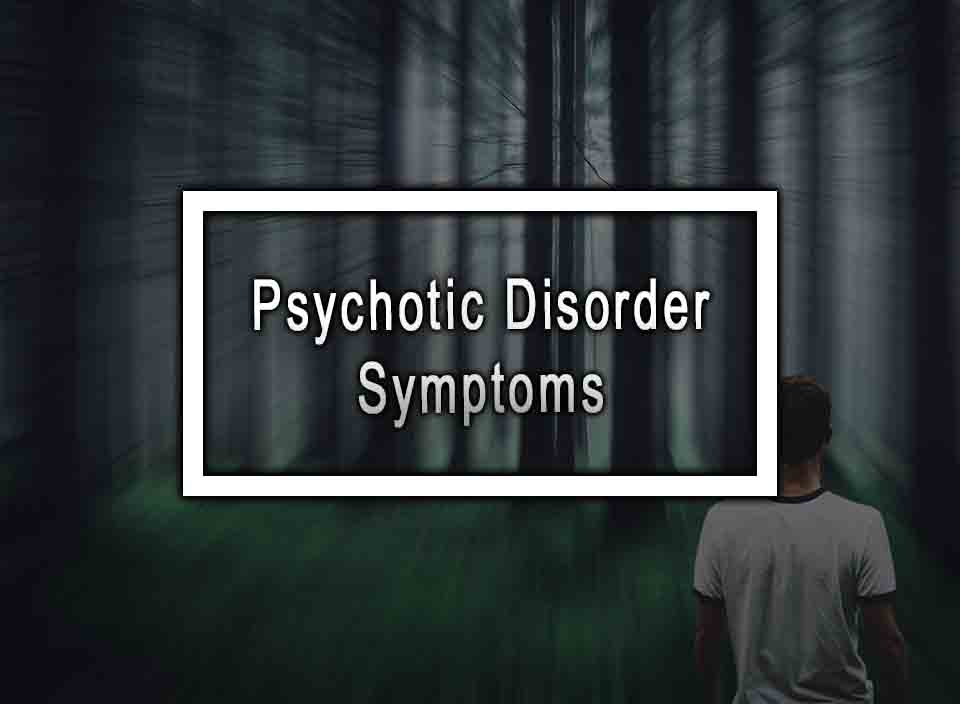Psychotic disorder symptoms are a group of mental illnesses characterized by abnormal behavior, thinking, and perception. Individuals affected by this condition often lose touch with reality, experiencing delusions, and hallucinations. The symptoms of psychotic disorders vary among individuals, with some experiencing mild symptoms while others exhibit severe symptoms that interfere with daily life.
The burden of psychotic disorders is significant, with individuals affected often experiencing difficulty with work, relationships, and self-care. While psychotic disorders can be treated, individuals often face stigma and discrimination due to the misconceptions surrounding the condition. This article focuses on the symptoms of psychotic disorders, their causes, and possible treatment options available.
Table of Contents
ToggleWhat are Psychotic Disorders?
Psychotic disorders are a group of mental illnesses that represent a significant challenge to the mental health care system. These mental illnesses are characterized by abnormal thinking, behavior, and perception that affect an individual’s ability to function normally. The symptoms of psychotic disorders often manifest in late adolescence or early adulthood and can vary from person to person.
There are several types of psychotic disorders, including schizophrenia, schizoaffective disorder, delusional disorder, substance-induced psychotic disorder, and brief psychotic disorder. Each type of psychotic disorder is characterized by specific symptoms and requires an individualized treatment approach.
Psychotic Disorder Symptoms
The psychotic disorder symptoms are broad and varied, with some individuals experiencing mild symptoms while others experiencing severe symptoms. Some of the common psychotic disorder symptoms include:
Delusions
Delusions are false beliefs or ideas that an individual holds despite evidence to the contrary. Individuals affected by psychotic disorders often experience delusions, which can take on different forms. For instance, a person may believe that someone is trying to harm them or is monitoring their thoughts.
Hallucinations
One of the psychotic disorder symptoms is hallucinations are sensory experiences that seem real but are not present. Individuals affected by psychotic disorders often experience auditory hallucinations, where they hear voices that are not present. Hallucinations can also affect other senses, such as taste, smell, and touch.
Disordered Thinking
Individuals affected by psychotic disorders often experience disordered thinking that can make it difficult for them to form coherent thoughts or express themselves. They may also experience difficulty with memory and concentration.
Abnormal Motor Behavior
Individuals affected by psychotic disorder often display abnormal motor behavior, such as awkward movements, a lack of coordination, and repetitive mannerisms.
Social Isolation
Individuals affected by psychotic disorder often experience social isolation and may have difficulty maintaining relationships with others.
Causes of Psychotic Disorders
The causes of psychotic disorders are not well understood. However, studies suggest that genetics, environmental factors, and abnormalities in brain chemistry are contributing factors. Individuals with a family history of psychotic disorders, exposure to trauma or stressful life events, and substance abuse may have an increased risk of developing psychotic disorders.
Treatment Options
The treatment options for psychotic disorders include medication and therapy. Antipsychotic medications can help alleviate symptoms such as delusions, hallucinations, and disordered thinking. Therapy can also help individuals learn coping skills and improve their social functioning.
Family support is critical for individuals affected by psychotic disorders. Family members can help monitor medication adherence, provide emotional support, and assist with daily activities.
Conclusion
Psychotic disorder symptoms can be debilitating, affecting an individual’s ability to function normally. The symptoms of psychotic disorders vary among individuals, with some experiencing mild symptoms while others exhibit severe symptoms that interfere with daily life. While psychotic disorders can be treated, individuals often face stigma and discrimination due to the misconceptions surrounding the condition. The burden of psychotic disorders is significant, with individuals affected often experiencing difficulty with work, relationships, and self-care. It is, therefore, crucial to increase awareness and understanding of this condition to reduce stigma and improve access to effective treatment options.
Psychotic Disorder FAQ
Here are the most common questions about psychotic disorder symptoms.
What are the different types of psychotic disorders?
The two main types of psychotic disorders are schizophrenia and schizoaffective disorder. Other conditions that may involve psychotic symptoms include bipolar disorder, major depression with psychotic features, and delusional disorder.
Are there any risk factors for developing psychotic disorders?
Risk factors for psychotic disorders include a family history of these conditions, drug abuse, childhood trauma, and social isolation. However, not everyone who experiences these risk factors will develop a psychotic disorder.
How is a psychotic disorder diagnosed?
A psychotic disorder is typically diagnosed by a mental health professional, such as a psychiatrist or psychologist. They will evaluate a person’s symptoms, medical history, and family history, and may also conduct physical or neurological exams or order imaging tests. They may also use standardized diagnostic criteria, such as the DSM-5, to make a diagnosis.
Can people recover from psychotic disorders?
Yes, people with psychotic disorders can recover and lead fulfilling lives. Recovery typically involves a combination of medication, therapy, and support services, such as vocational training or social skills building. However, recovery looks different for everyone, and some people may have ongoing symptoms or require ongoing treatment.
How can friends and family members support someone with a psychotic disorder?
Friends and family members can support someone with a psychotic disorder by providing emotional support, encouraging them to seek treatment, and participating in their treatment as appropriate. They can also educate themselves about the condition and its symptoms, and work with the individual to develop coping strategies and identify triggers that may worsen symptoms.
More like this: Thought Disorder Symptoms And Treatment











